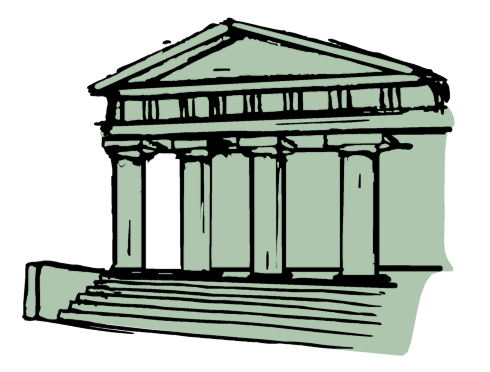 We are at the very beginning of time for the human race. It is not unreasonable that we grapple with problems. But there are tens of thousands of years in the future. Our responsibility is to do what we can, learn what we can, improve the solutions, and pass them on.
We are at the very beginning of time for the human race. It is not unreasonable that we grapple with problems. But there are tens of thousands of years in the future. Our responsibility is to do what we can, learn what we can, improve the solutions, and pass them on.
- Richard Feynman ( Nobel Laureate for Physics 1965 )
It seems that there is no "General Theory of Problems and their Solutions". However Yossarian came close to propounding one. Maybe I should explain to the TV generation. Yossarian was a character in a best selling book called CATCH - 22 written by Joseph Heller, a movie was based on the book , and a TV serial called M*A*S*H was inspired by it. In the mid seventies it was available at all sidewalks in Delhi and footpaths in Bombay, and I am sure at all the other big town and small town bookshops. I could never get through the whole thing, but its main theme was obvious in the first few pages. Perhaps that could be summarised like this - where "the affairs of men" are involved, then solutions to problems create their own problems. In other words there was always a catch to it, he numbered at least one catch and called it Catch - 22.
When talking about such abstractions like Democracy this has to be kept in mind. That there is never going to be a perfect implementation. The larger the scope, the more imperfect the solution. In mathematical terminology it would be called an asymptotic solution, it would tend to reach an ideal or a limit, yet never ever reach it. It must be quite evident to a lot of people that effectiveness of rules and regulations meant for a small region, will degrade if applied over a larger area.
Take time to ponder about our multi-lingual country, it still uses many rules and regulations - framed close to 2 centuries back by an alien, mono-lingual, people with commercial intentions, from a small country which don't even reflect those in the mother country at that time . There is no embarrassment at all when applying laws from say 1926, 1932 a pre-Independence period. That's all right, just shed a tear for what "might have been" if we had started reforming 50 years earlier.
Try talking about these things and they will be quickly labelled as "Bakwas" in the old hometown and I am sure just about everywhere else, big or small, in India. Quite possibly all over the world. How did this happen ? Only the superficial Newspaper type incidents seem to be worthy of comments, but not observations which get under the skin. Government is supposed to be everybody's business in a democracy. Dwelling on these subjects for more than a cursory comment label's one to be an idiot . Why ? ... Let's leave the answer to that one for research in a University.
Things were not always like this . Here is an extract from a wonderful Reader's Digest book called The Last Two Million Years.
I quote more than necessary, since it may refresh things now hidden in remote recesses of our minds.

One reason why a different form of government evolved in Athens was the fact that the city was primarily a naval power. Its war galleys were rowed by ordinary working men conscripted into the forces who, since they contributed so much to the state, felt they should have a share in determining how it was run. In aristocratic Sparta, where all manual labour was done by peasants and serfs, such an idea would be unthinkable. At the same time the community of Athens was small enough for every citizen to make his voice heard. Fishermen, merchants, jewellers, potters and landowners met on equal terms in the governing assembly and had an equal say in discussions on all important matters. The interchange of ideas between men from all walks of life made Athens a very human world, completely different from conservative Sparta.
Not to show an interest in public affairs and matters of state was considered so stupid that our word 'idiot' derives from the Greek word meaning ' a private citizen' - someone who attended only to his own affairs and did not bother with those of the city.
At this point let me thank you for having read to here about what must be the dullest topic on earth. Maybe life is not all that it ought to be, maybe the dog walks away when you tell it to come here, maybe the wife growls all the time, maybe the boss laughs when you ask him for a raise. As they say welcome to the club. Cheer up at least you are not writing this stuff. Maybe together we will turn the planet upside down, one day.
Dull this maybe trivial it isn't. And yes slow down , you surf too fast. You missed something important in the last few lines. Sparta and Athens are just a few hundred miles apart so how is it that they had contradictory forms of Government. I wish this was the shape of things to come but it is actually the ghost of ages past. This must refer to the state of things close to 3000 years ago. There was no Greece then ( there were no cars then either :) ). This is what they call the beginning of civilisation - the city state. The current form is called the nation state. Somewhere in between was what I like to think of as the Empire state. I think - I am depending on memory now - China at that time was a pretty advanced Empire state.
I assume you are not a political science graduate and are about as interested in these things as the next person. May I suggest that you at least take a mild interest. Why ? Look around is there a single country where Government is like the people want it to be ( including the US with it's built from a scratch constitution) . To say the least there is room for vast improvement. Nothing will happen unless ordinary people at least make a noise.
I have a suggestion , before you pursue this wildly exciting topic, why don't you download at least one of these Electronic books - the latest was written just before the US declaration of Independence (1776), and in fact US creation is directly traceable to this. Common Sense by Tom Paine. Click here to download.. Another is Utopia by Thomas More which probably influenced Common Sense. 1516 vintage. And the one which closely describes many Politicians in India is The Prince by Machiavelli. Damn the public preserve and promote yourself is the theme.

A few comments about these maybe in order . Try locating Common sense on paper and you can't get it . One of the possible reasons is that it was too short for it to be a book. To find any other reason you have to read the book. It is illegal to publish this in UK. Another interesting fact is that I located the text under a site called Marxist.org. Marx came almost a hundred years later wrote symptomatic drivel for 20 years. This gets to the core and is unknown. I would vote for Tom Paine as the man of the Millenium. Why ? Because his writing resulted in the country of the Millenium.
And what about Utopia ? That was written after Amerigo Vespucci discovered America and just before Columbus also discovered America. It does not sound revolutionary now, but the man who wrote it was later beheaded for Treason ( not for the book). Yes that could happen even in the enlightened West for making less than positive remarks about the king. This was the 16th century though. You may even have seen a movie about Sir Thomas More it was called A Man for all Seasons. 
BACK